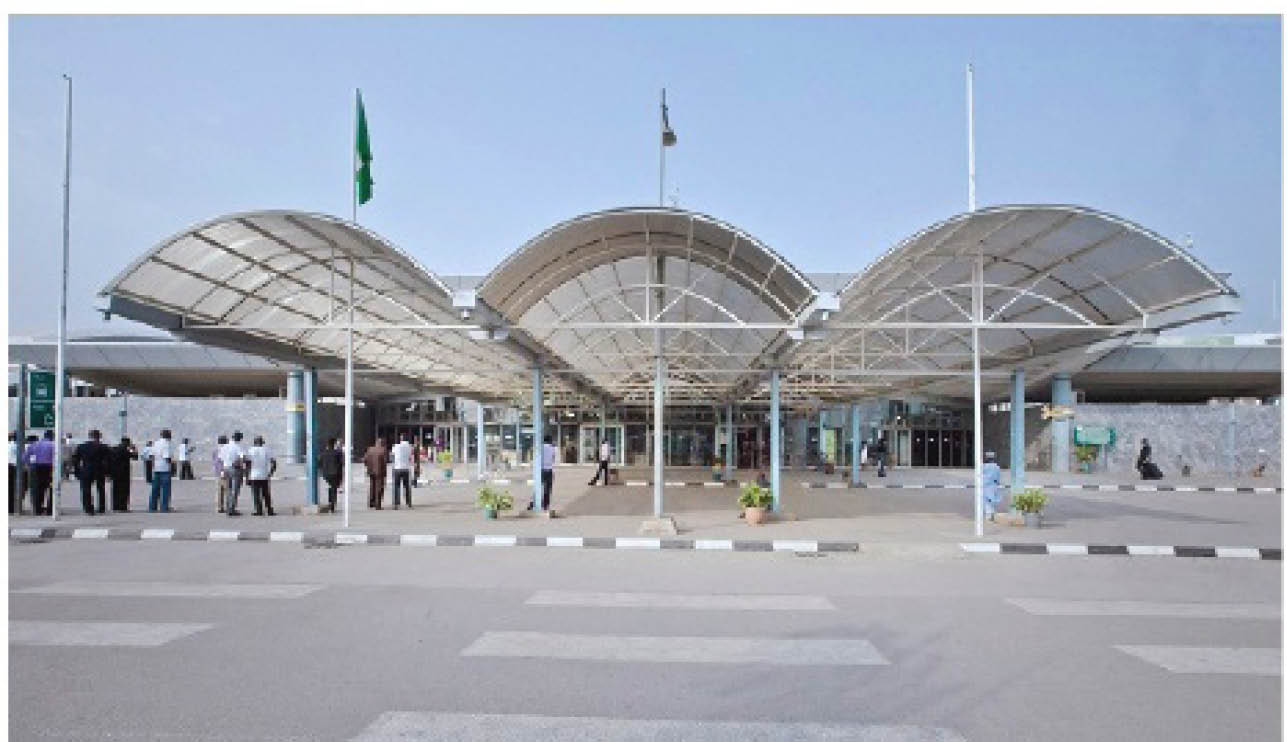Insecurity: FG installs E-verification gate at Abuja airport
The Federal Government has installed E-verification gates at the Nnamdi Azikiwe International Airport in Abuja as part of a comprehensive strategy to bolster internal security and streamline the arrival experience for Nigerians entering the country. These E-verification gates are a major component of the E-Immigration project, aimed at modernizing and optimising immigration processes across Nigeria’s […]

Nnamdi Azikiwe International Airport Abuja
The Federal Government has installed E-verification gates at the Nnamdi Azikiwe International Airport in Abuja as part of a comprehensive strategy to bolster internal security and streamline the arrival experience for Nigerians entering the country.
These E-verification gates are a major component of the E-Immigration project, aimed at modernizing and optimising immigration processes across Nigeria’s airports.
Four out of the planned 10 gates have already been installed at the Abuja airport. It is expected that the remaining six gates will be operational before the end of the month.
The Minister of Interior, Olubunmi Tunji-Ojo, on Monday, while leading a delegation from the Ministry to inspect the project, expressed satisfaction with the progress made thus far.
He stressed the transformative impact of the investment, noting that it would significantly enhance national security by providing an additional layer of scrutiny for inbound travellers.
“Through advanced biometric scanning and automated flagging systems, the gates will swiftly identify individuals of interest or those on watchlists, bolstering the efforts of the Nigeria Immigration Service (NIS) to safeguard the nation’s borders.
“With an impressive clearance time of just 30 seconds per individual, the gates are set to establish a new standard for efficiency in airport processing, comparable to global benchmarks,” the Minister said.
The project aims to deliver a total of 40 E-verification gates across multiple airports by the end of the first quarter. These installations will include 10 gates in Abuja, 17 in Lagos, five in Kano, and four each in Enugu and Port Harcourt.
With these, Tunji-Ojo said: “Nigerians will soon be able to sleep with their two eyes closed, knowing fully well that their borders are well protected, and the Nigerian state is secured.”
During the inspection, Tunji-Ojo also assessed the progress of construction and installation work at the Command-and-Control Centre and Border Control Data Centre, both housed within the NIS headquarters.
